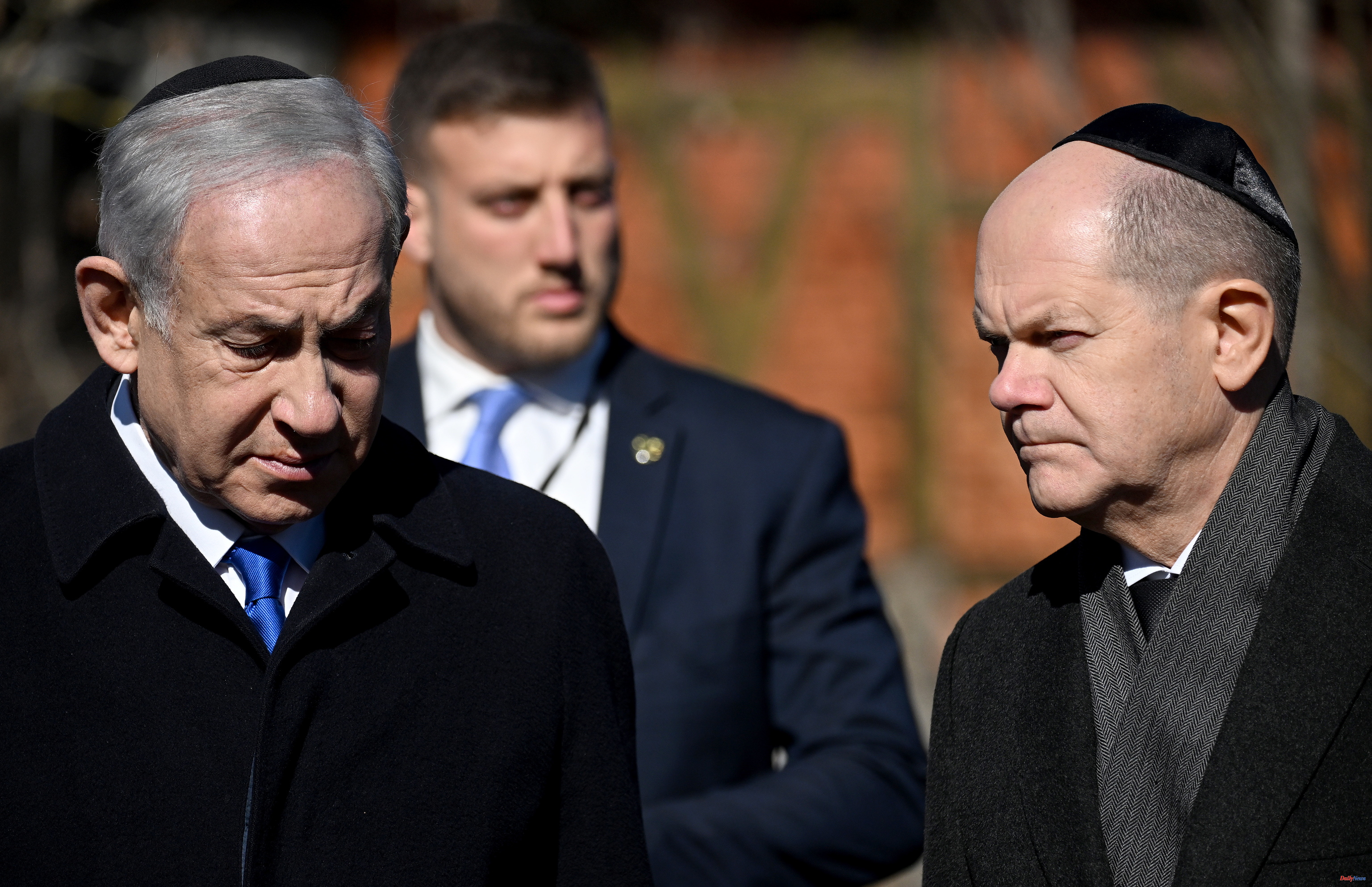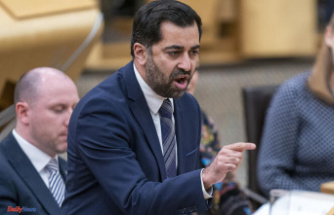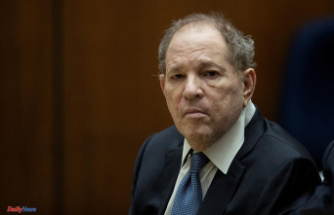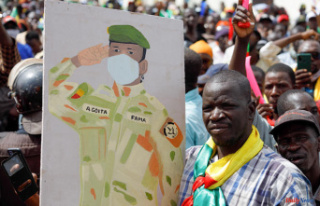The strong protests that are taking place in Israel over the reform of the judicial system proposed by a government participated in by the religious extreme right have persecuted the Israeli prime minister, Benjamin Netanyahu, to Berlin. And not only because a thousand people, especially resistant Israelis in the capital, recreated the demonstrations at the Brandenburg Gate that Netanyahu thought he had left behind, but because of the reservations with which he has been received by the German authorities. "As partners in democratic values and close friends of Israel, we are following this debate very closely - and I am not going to hide it - with great concern," said Foreign Minister Olaf Scholz, referring to the controversial judicial reform.
In a joint press conference after a working lunch that Netanyahu wanted to focus on Iran and business, Scholz, more attentive to German public opinion, stressed that the independence of the judiciary is a democratic good of the first order and praised the efforts of Israeli President Izchak Herzog to mediate in a conflict that, in his opinion, puts Israel on the brink of civil war. He avoided further pronouncements "because it would be meddling in internal affairs," Sholz said shortly.
Netanyahu's response to Herzog's fears and to the concern of a Germany hostage to its history was contempt for those who "do not understand that in a democracy the powers of the Executive, the Legislative and the Judiciary must be balanced, which in Israel they do not." is the case". "The aim of the reform is not to weaken democracy but to strengthen it and attend to the rights of minorities," Netanyahu said. He explained that in Israel judges have a veto power that makes them so powerful that they can boycott even majority initiatives. "In France or in Germany that does not happen," he pointed out.
In the narrative of Netanyahu, who is being tried on charges of corruption that he denies, the majority is not on the streets but in the Knesset and that means for him prime minister remaining in power. Listening to the clamor of the street and the appeal of President Herzog would endanger his coalition and with it Justice itself. Not surprisingly, Israel's attorney general has warned Netanyahu that he cannot participate in the judicial reform debate, since the processes he faces for alleged fraud, breach of trust and acceptance of bribes represent a conflict of interest.
The central laws of the controversial reform, including the "annulment clause" - which will prevent the Supreme Court from annulling laws or norms that are unconstitutional -, obtained preliminary approval in the Knesset this week and are expected to pass definitively by the end of the month.
The reform also includes provisions that would give the government full control over the appointment of judges, in addition to allowing political officials to occupy the positions of legal advisors in the ministries, aspects that imply the politicization of Justice, according to its detractors.
For Netanyahu, however, Israel needs that reform to shore up its democracy and consequently "there is no alternative to it," he stressed, not without accusing the opposition of a lack of willingness to dialogue. "The points presented by President Herzog were not agreed with the opposition either," he gave as an example.
The visit to Germany of the Israeli prime minister, for which a police operation of 3,000 agents and the maximum security alert have been arranged, has not brought him more revenue than the economic one. From the head of the German-Israeli parliamentary group, Grabiela Heinrich, to the head of the Central Council of German Jews, Josef Schuster, asked Scholz not to mince words when criticizing the judicial reform because "the dismantling of democratic structures would also not be acceptable to the Jewish community outside of Israel."
For Netanyahu, however, the only opinion that counts is that of the United States and, 11 weeks after beginning his third term, he has still not been invited to the White House, a rudeness that the prime minister has extrapolated to all his ministers, preventing them from meeting. with US officials before he does. The open instability in Israeli society, already polarized, will not accelerate the long-awaited invitation of a Netanyahu who presents himself as the great democrat. "Israel will always be a liberal democracy with a vocation for peace and justice," he promised.
It was the preamble to warn against the nuclear threat from Iran and show the muscle of Israeli power. "If we have to intervene to prevent Iran from getting a nuclear weapon, we will. We will not allow a second Holocaust," he said. The first reference to Iran was during Scholz and Netanyahu's pre-lunch visit to platform 17 of the Grunewald station in west Berlin, from where some 10,000 Jews were taken by train to labor, concentration and camps. extermination of the Nazis in 1941 and 1942. "Israel today faces threats to its existence and that hinder the designs of evil from the beginning." Scholz agreed that Iran must not obtain nuclear weapons," but "the highest priority is a diplomatic solution."
But stability in the Middle East depends not only on Tehran but also on the solution to the eternal Palestinian conflict, and that is what the chancellor referred to when renewing Germany's commitment to a two-State solution. Scholz said that both parties can negotiate with each other and called for "refraining from unilateral actions" that go against this. He then paused briefly, looked at Netanyahu and said: "This also includes the construction of new settlements."
Netanyahu has compressed the two-day official visit he had planned to make in Germany to a few hours due to the instability in his country. That he had not canceled it is explained, according to analysts, by the need to show some control of the situation and in business.
Both countries want to strengthen their arms cooperation. So far, Germany has supplied the country with submarines and bought drones, but on the table is the Israeli-made Arrow-3 ballistic missile defense system as part of a European shield that Scholz wants to establish with other countries. Adding to that interest is the fact that, with its natural gas reserves in the Mediterranean, Israel will also become an energy supplier to the EU in the future.
Netanhayu was seen off at Ben Gurion airport with banners reading "Fleeing dictator" and "Don't come back." In Berlin, next to the Brandenburg Gate, thousands of protesters shouted "corrupt" and "undesirable".
According to the criteria of The Trust Project












